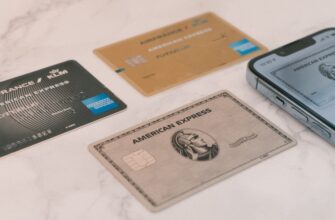Why Password Protection for Private Keys is Non-Negotiable
Your private key is the ultimate gateway to your cryptocurrency holdings, encrypted communications, and digital identity. Unlike passwords you can reset, a compromised private key means irreversible loss of assets and data. Password protection adds a critical security layer by encrypting your key file, ensuring that even if someone accesses the physical file, they can’t use it without your passphrase. For beginners, this is cybersecurity 101: Always encrypt sensitive cryptographic keys.
Step-by-Step: How to Store Private Keys with Password Protection
Follow this beginner-friendly process to securely store your private keys:
- Generate your key pair using trusted tools like OpenSSL, GnuPG, or your crypto wallet’s built-in generator.
- Enable encryption during creation – When prompted, set a strong password (avoid common phrases or personal info).
- Export the encrypted key as a .pem, .key, or .gpg file format that supports password protection.
- Verify encryption by attempting to open the file – Properly encrypted keys will demand your password.
- Store the encrypted file offline on a USB drive or hardware wallet, never in cloud storage or email.
Best Practices for Storing Password-Protected Keys
Maximize security with these essential habits:
- Password strength is paramount: Use 14+ characters with uppercase, symbols, and numbers (e.g., “Tr0ub4d0ur!2024” beats “password123”).
- Separate storage locations: Keep encrypted keys on an offline device and passwords in a dedicated manager like Bitwarden or KeePass.
- Enable 2FA everywhere: Add biometric or authenticator app verification for accounts linked to your keys.
- Regular backups: Duplicate encrypted keys on multiple offline mediums (e.g., USB + external HDD) stored in fireproof safes.
Critical Mistakes Beginners Must Avoid
Steer clear of these catastrophic errors:
- Password reuse: Never recycle passwords across keys or accounts.
- Digital copies of unencrypted keys: Screenshots or text files defeat the purpose of encryption.
- Sharing via insecure channels: Email or messaging apps can be intercepted.
- Weak password hints like “mom’s birthday” or pet names attackers can guess.
Private Key Password FAQ
Q: Can I recover a private key if I forget the password?
A: No. Password-protected keys use irreversible encryption. Lose the password = permanent loss. Use password managers to prevent this.
Q: Is a password enough protection?
A> It’s the first layer. Combine with hardware wallets and offline storage for maximum security (“cold storage”).
Q: How often should I change my private key password?
A: Only if compromised. Frequent changes increase forgetfulness risks. Focus on initial strength.
Q: Can malware steal password-protected keys?
A> Yes, if you enter the password on an infected device. Use dedicated clean machines for key management.
Q: Are paper wallets safe for password-protected keys?
A> Only if printed temporarily for offline transfer. Physical damage and theft risks make digital encryption superior for long-term storage.








